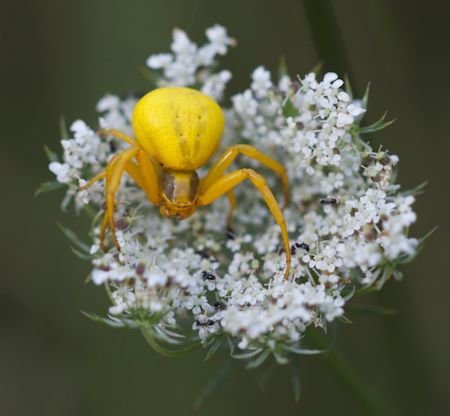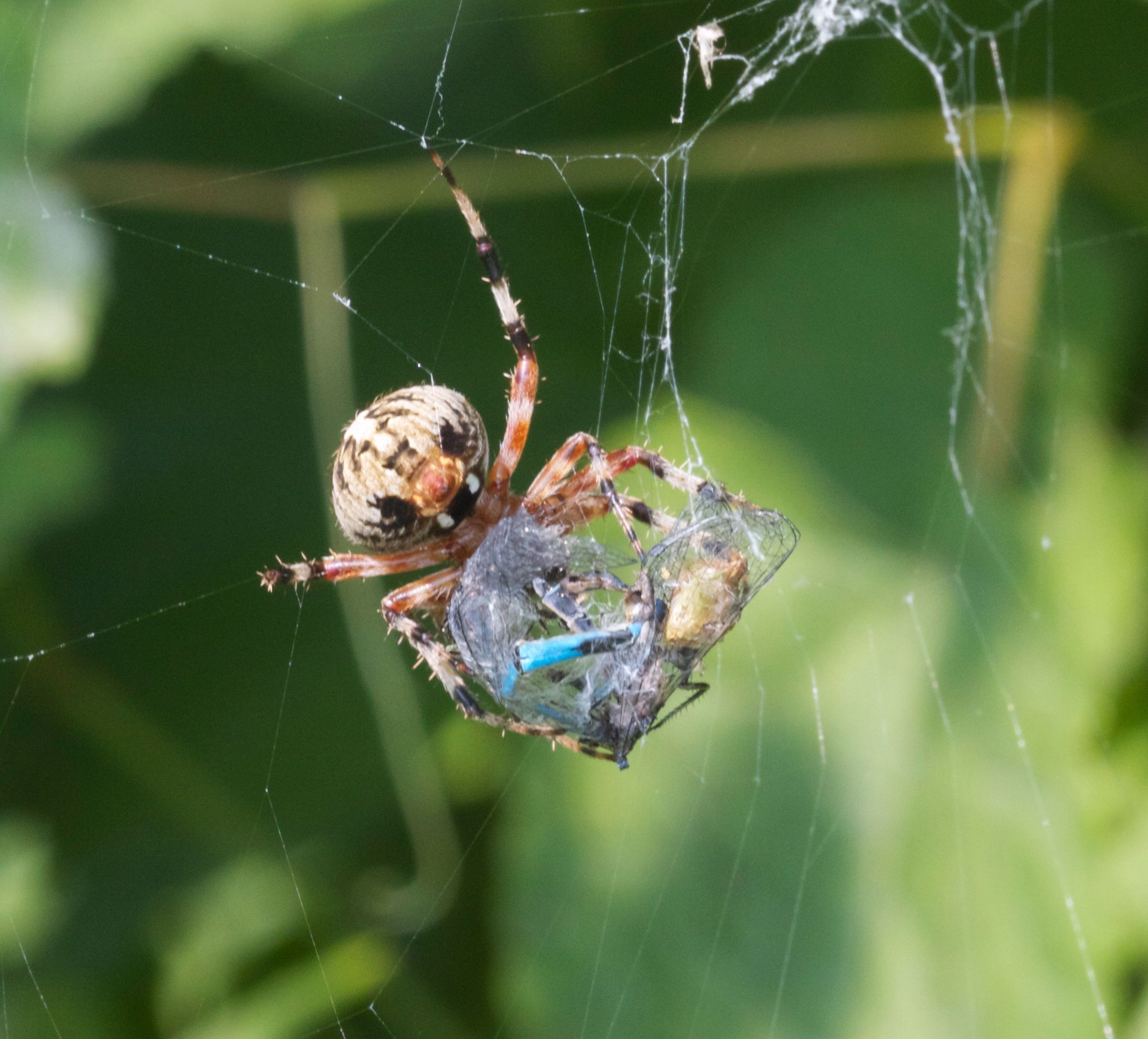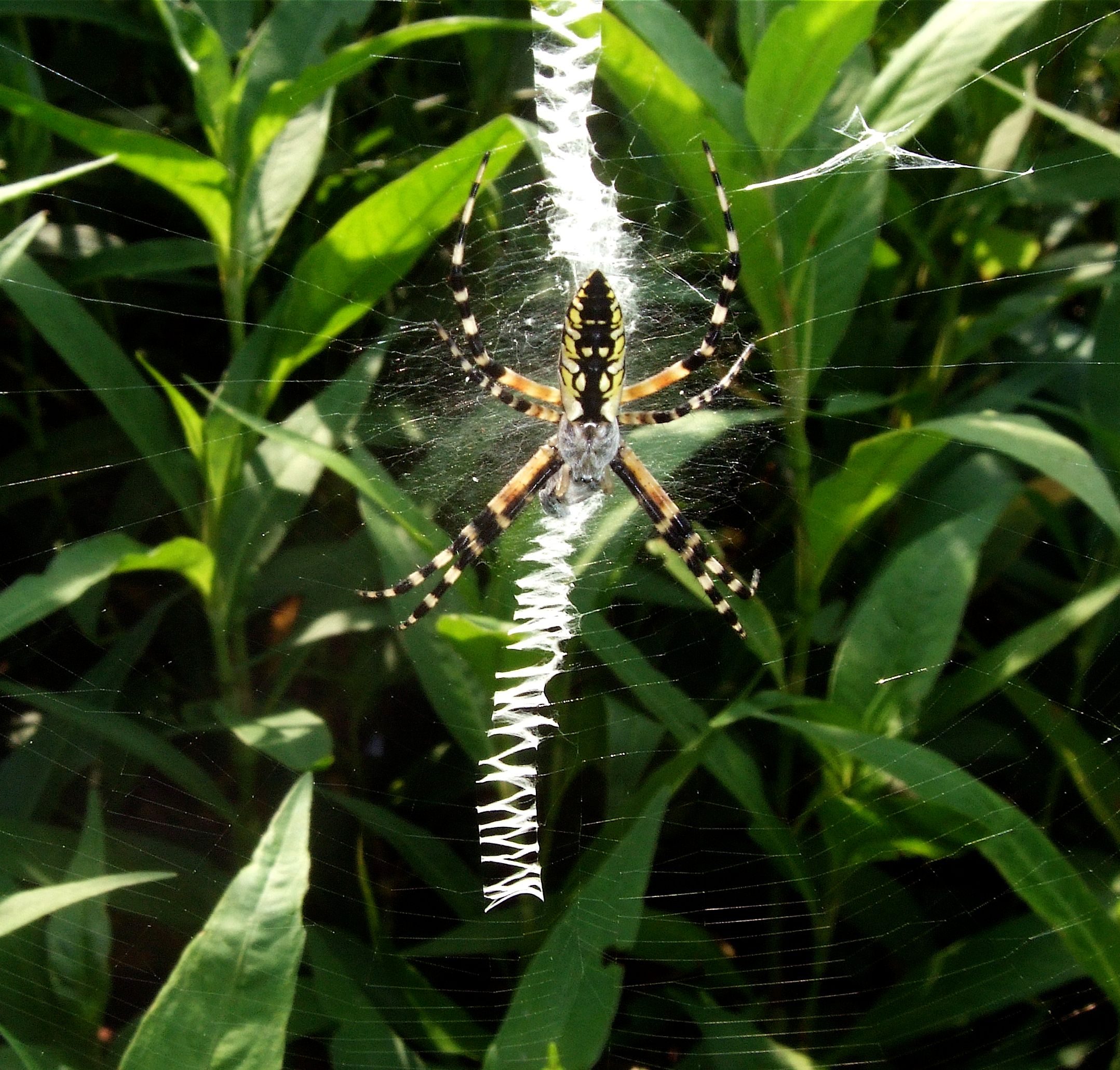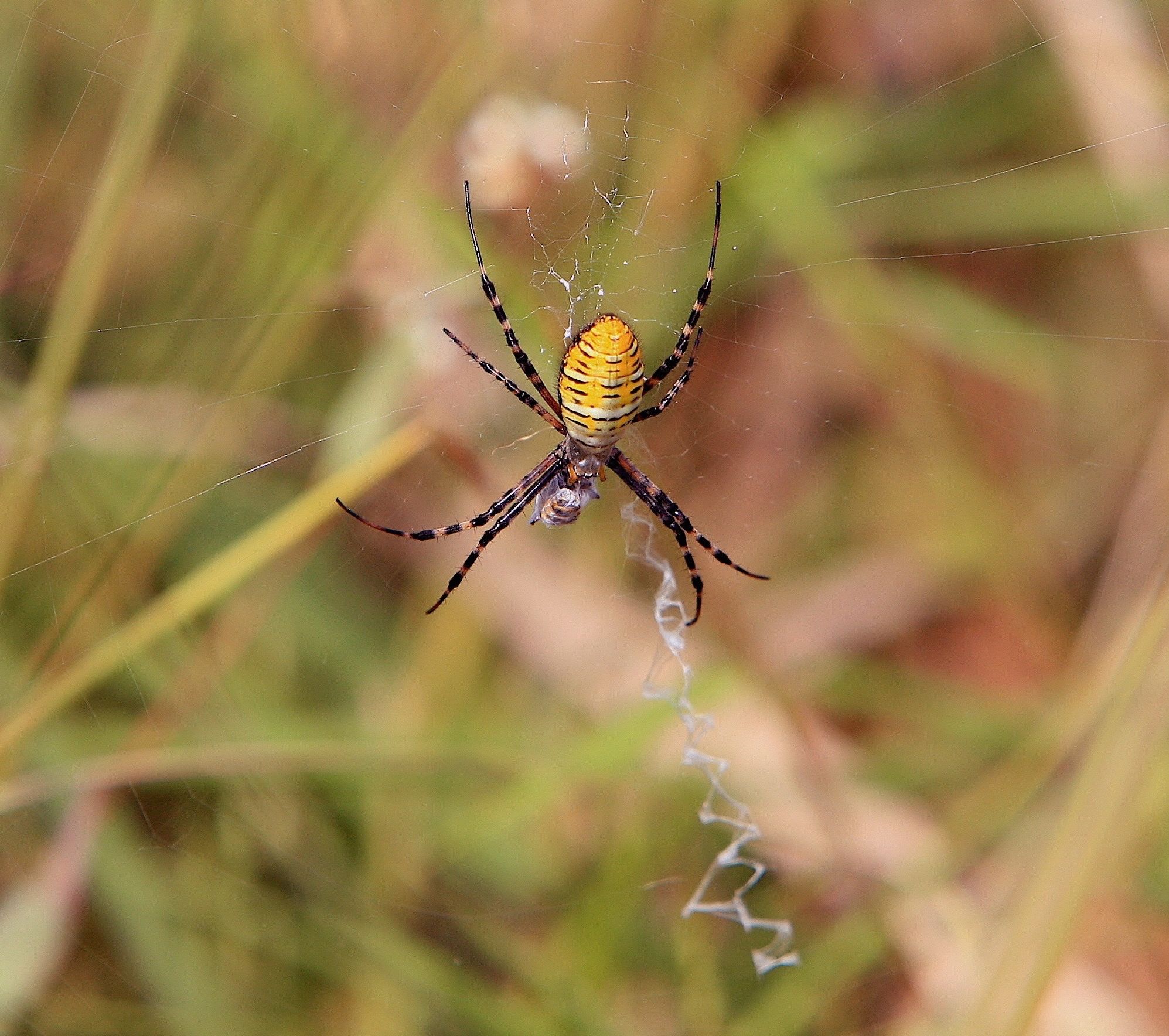FODMers Help With National BioBlitz

During the May 20 and 21, 2016, national BioBlitz, FODMers, National Park Service (NPS) staff and friends identified 13 new spider species in the Dyke Marsh-Belle Haven Park area. Other records for Dyke Marsh: the first spring record for a Philadelphia vireo (Vireo philadelphicus); the second record for the hoary bat (Lasiurus cinereus); one new earthworm (Bimastos palustris), a native species; and two new terrestrial isopods (Porcellio laevis, Trichoniscus pusillus). At our “sister” park, Theodore Roosevelt Island, people found 17 new lichens.
The BioBlitz was a nationwide celebration of NPS’s centennial, sponsored by NPS and the National Geographic Society.
Dana Deroche, a Smithsonian Institution spider expert, identified the spiders for volunteer collectors. We were honored to have Marco Aurelio, a park ranger from Chile, and many volunteers. Alex Romero, Brent Steury and other NPSers organized the activities and provided able assistance.
Why spiders? Norman Platnick of the American Museum of Natural History was quoted in the Washington Post (July 22, 2014) saying that worldwide 45,000 spider species have been identified and “that’s at best one-half of what actually exists.”
All photos contributed by Ed Eder. Above, the goldenrod crab spider (Misumena vatia) on Queen Anne's lace (On goldenrod this spider camouflages beautifully}.
|
|
|
|




 Friends of Dyke Marsh, Inc. is a non-profit 501(c)(3) organization.
Friends of Dyke Marsh, Inc. is a non-profit 501(c)(3) organization.